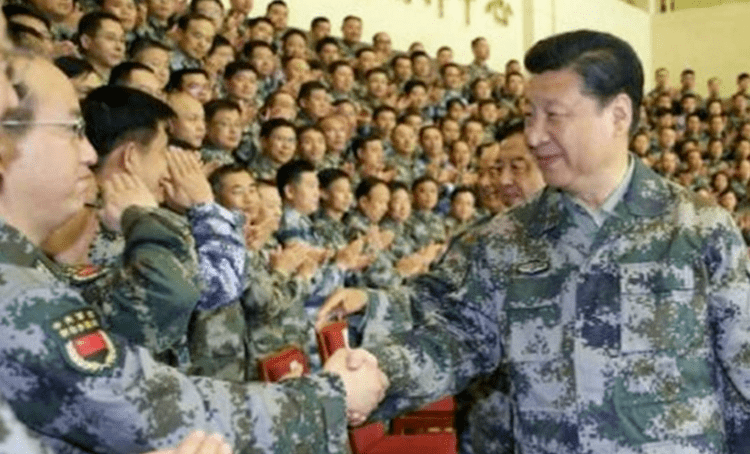Xinhua, the state-run mouthpiece that speaks for the Chinese Communist Party, has announced the completion of a government campaign to “terminate all paid services” by the People’s Liberation Army.
According to Xinhua’s English-language statement: “The goal that the military no longer engages in commercial activities has been basically achieved.”
The campaign began in late 2015 on the orders of Chinese President Xi Jinping. However, despite the announcements, it’s likely that the PLA continues many of its illicit and profitable businesses, a challenge hinted at by the Chinese-language Xinhua article.
According to the reports, paid services by the military — such as running kindergartens and providing retail goods for civilians — are things that belong to the “special historical conditions” of earlier Chinese economic development.
Being a key part of the CCP’s control over China, the PLA and its personnel have long been allowed special rights and privileges by communist leaders. In the 1970s, officers and soldiers were encouraged to grow their own food and live independently of the civilian system. At that time, for ordinary Chinese, this would have been a political crime. Later, the Communist Party implemented capitalist reforms, allowing people to run businesses and own property. With better access to goods and being more experienced with capitalist ideas, those who benefited the most from the reforms were often members of the military.

A 2019 meeting of Norinco, a major Chinese state-run defense manufacturer. (Image: via WeChat)
Success
You are now signed up for our newsletter
Success
Check your email to complete sign up
Due to its official protections, the PLA became fertile ground for corruption. In the 1990s and 2000s, the military was engaged in multi-billion-dollar ventures with support from the then-CCP leaders. The PLA also became closely tied to the communist regime’s human rights abuses, in particular, forced organ harvesting from religious and political prisoners. Organs transplanted from healthy inmates can be sold for tens of thousands of dollars, earning massive profits for army hospitals.
Xi Jinping’s 2015 order to end the commercialization of the PLA came around the same time that he implemented broader reforms to the military structure. Under Xi, the CCP has abolished old military commands, redefined its mission, and laid off excess personnel.
According to Xinhua’s Chinese article, Xi “perceived the dangers of the military engaging in paid services” and made a “strategic decision” to put a complete end to PLA profit-making.
Based on the language used in the Chinese Xinhua article and other factors, it seems that many PLA officers have resisted efforts to bring their activities under control, and that the campaign against paid services has not been as successful as the English-language statements claim. The Chinese-language report reminds readers that Xi’s orders must be heeded, and in the headline describes the campaign as an ongoing issue.
Analysts at the think tank SinoInsider noted in a newsletter that the CCP has given similar orders in the past, with the completion date of the campaign being postponed several times. The Xinhua report said that “formidable and arduous” work remains to be done.
“Whether or not Xi can succeed in completely ceasing paid military services is a key leading indicator of whether he can ‘strictly govern the military,’” SinoInsider wrote, using one of Xi’s popular slogans.
The newsletter also saw the Xinhua report as a statement against the legacy of Xi’s political rival, retired Party leader Jiang Zemin. Under Jiang’s leadership, corruption among officials and generals ran rampant, and organ harvesting became a major source of income for the Chinese hospital system, in addition to physically liquidating groups deemed undesirable by the CCP.
Follow us on Twitter or subscribe to our weekly email














